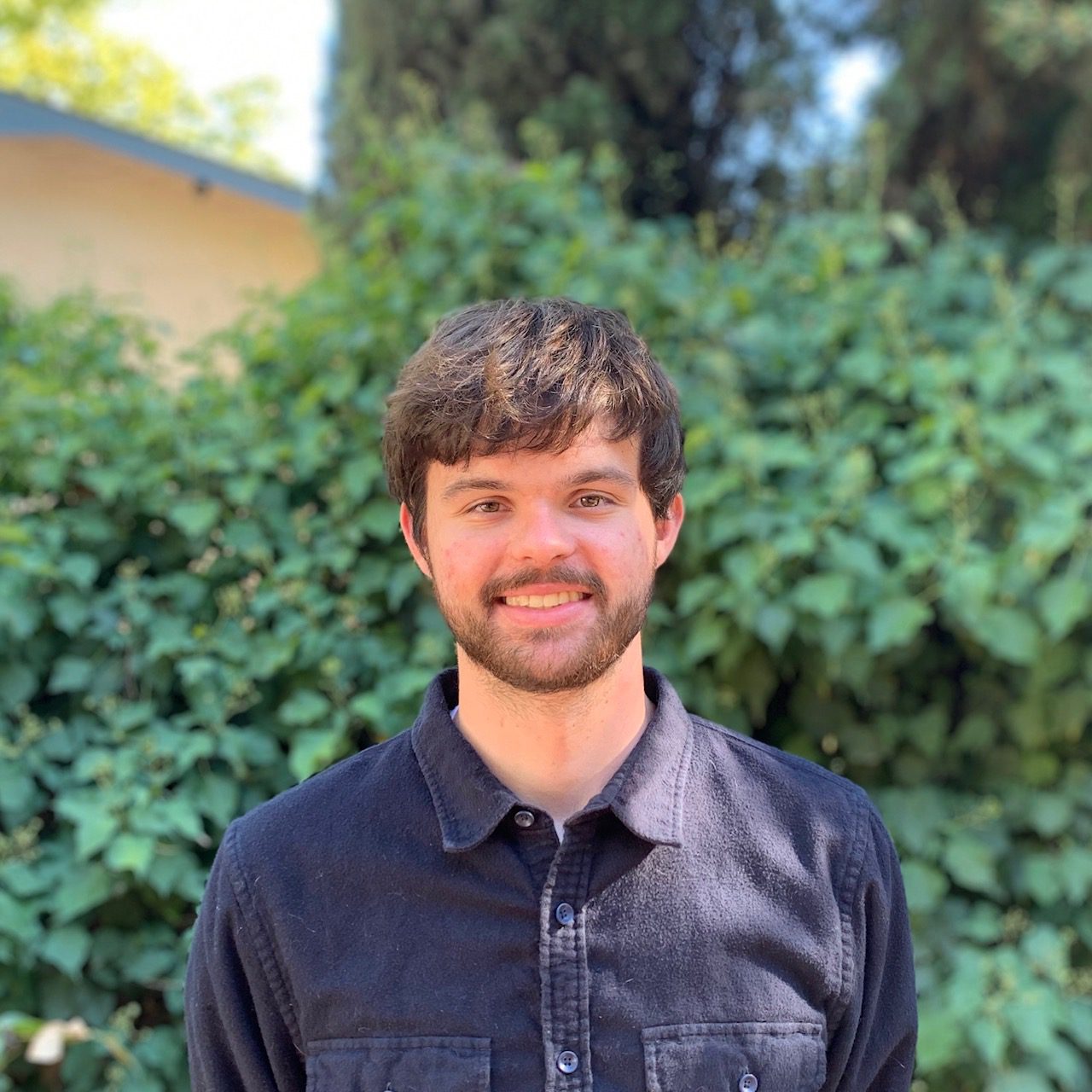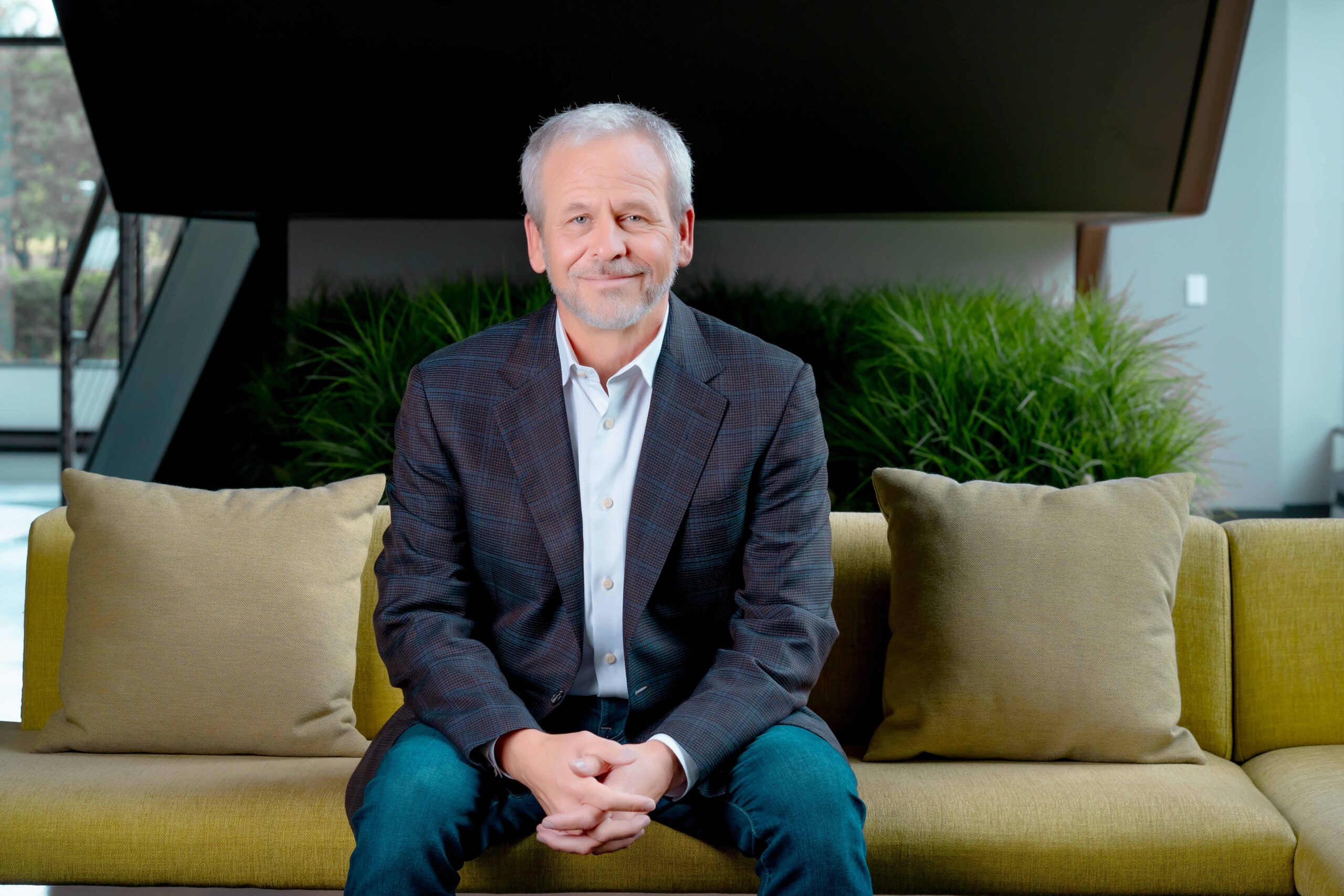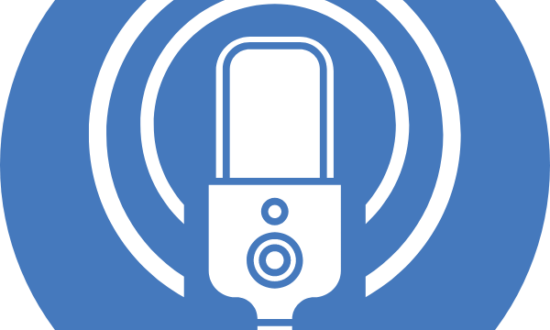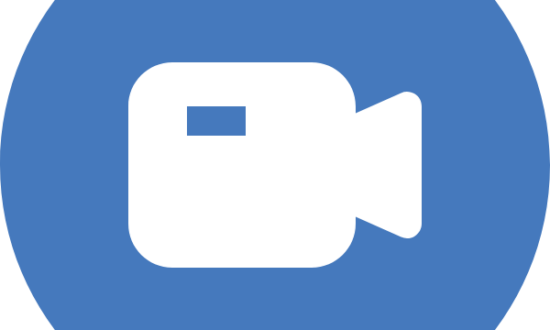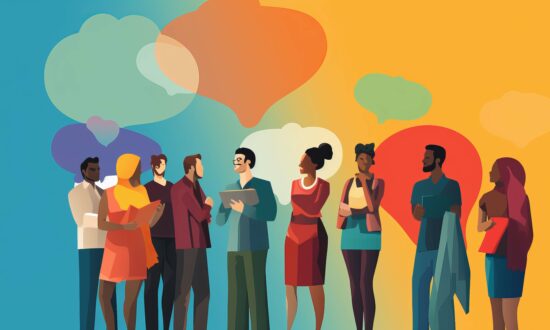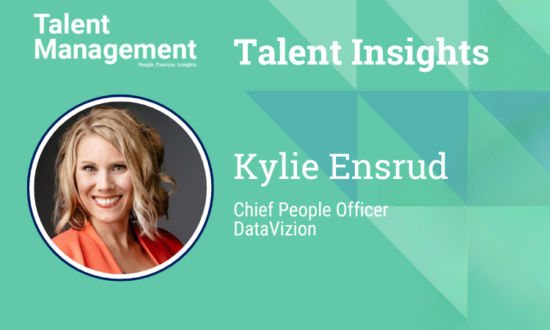Kevin Lowell, chief people officer for UScellular, uses his three decades of experience as a talent leader to help give associates a robust experience from the day they walk in the door. In his role, Lowell, who has been in his role for less than a year, oversees talent management, benefits and compensation and internal and external communications for his organization.
While he is new to his role, he leans on more than 20 years at UScellular running the technology side of the company, with a throughline for the people side of the business. “Every business ultimately is a people business,” Lowell says. “Let’s not lose sight of the people part and spend too much time focused on the business part. People come first; let’s not forget that.”
Throughout his time at UScellular Lowell has consistently impressed his colleagues. “Kevin demonstrated his ability to lead people, create inspiration and transform those organizations,” says Mike Irizarry, executive vice president and chief technology officer at UScellular, who has worked with Lowell over the past 20 years. “He is a great example of a leadership factory and a development factory of people in all roles.”
Powering people
Lowell’s career journey has been marked by pivotal moments and valuable guidance. During several years at Sprint Cellular, Lowell had the opportunity to gain a variety of experience on the technology, regulatory and retail side of the business, providing a broader understanding of the telecommunications industry.
One essential guide on Lowell’s path to success was his executive coach Steve Gordon. Over a decade, Gordon served as Lowell’s mentor, pushing him beyond his comfort zone and into areas where growth was essential. “He was instrumental in my career development,” Lowell says.
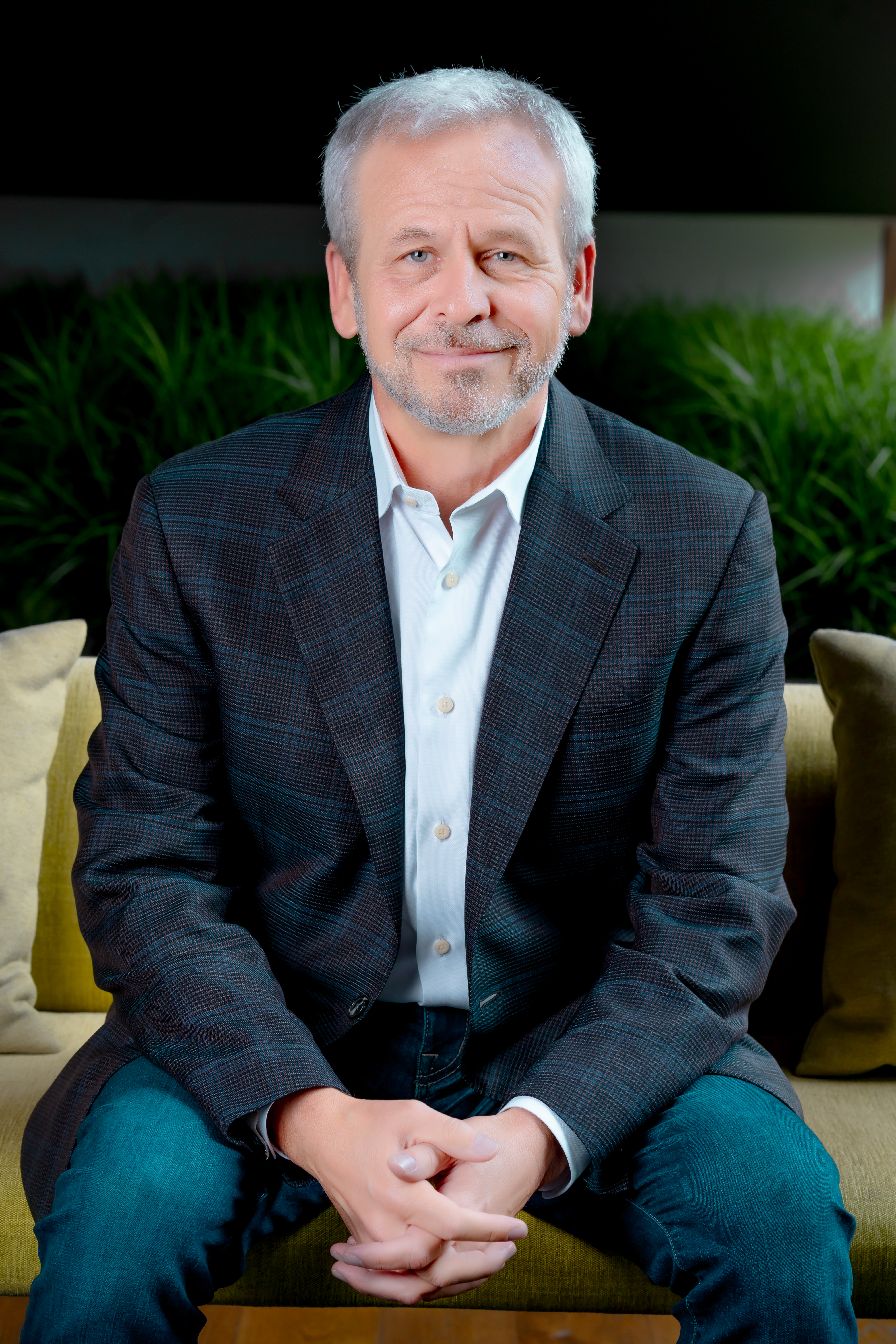
Lowell joined UScellular in 2003 as senior director of engineering. He was promoted to head of engineering and head of the IT organization before landing in his current position as chief people officer. Among these leadership roles, one of his core responsibilities was always to develop talent. “When I look at how people’s careers have grown, I love knowing that I have a hand in helping them move up in the organization,” Lowell says.
At an annual leadership recognition event 15 years ago, each of Lowell’s direct reports in the engineering organization were recognized as top leaders in the company. “Seeing each of them recognized as great leaders was so rewarding for me,” he says. “The people on their teams were getting the great leadership they needed and deserved from their leaders.”
Leading the IT organization years later, Lowell helped foster an emerging leaders program to allow those interested the chance to learn about leadership and make the jump from being an individual contributor to a leader, something Lowell remembers struggling with in his own career. The 10- to 12-week program helped educate those interested in leadership by connecting them with leaders across the company. It gave the group a chance to connect with senior leaders from all backgrounds and hear about each unique journey to leadership at UScellular.
Of the 70 or so associates to go through the program, about 35 percent were promoted. “I’m really proud of what Clint [Wallin] developed and how we as an IT organization made that happen,” Lowell says. “Now the entire company has adopted the framework; we’re applying the same approach to developing all potential leaders.”
Despite not taking a typical path in HR or even engineering, Lowell has put in the work – including earning a Ph.D. in organizational development and leadership development studies from Fielding Graduate University while working at UScellular.
“He’s very coachable, always seeking feedback on how to make things better for his teams, for himself, for the broader organization and how it supports his people,” Irizarry says. “He’s a great collaborator. He’s always identifying both the transformative aspect of the challenge and the transactional part of it. Kevin is really mindful that you have to focus on both to end up where you want to be.”
The three Cs
Once the CPO role became possible, Lowell made it clear to leadership that he would love to be considered. “This was a great opportunity for me to combine everything that I understand about the business from a technology perspective with everything I care about and love about the people side of the business,” Lowell says. “The company took that seriously and made that opportunity happen for me.”
Lowell now leads a people organization of about 120 people in charge of overall talent management, talent lifecycle, communications, business partner support and executive and sales compensation, over a broader HR organization with about 4,500 associates.
When Lowell stepped into the role at the beginning of the year, the team was grappling with several initiatives. “Kevin grounded us in the financial workings of the company and the challenges we have on the horizon and then empowered us to make decisions about what is in alignment with the three C model,” says Pamela Moore-Thompson, vice president of talent strategies and organizational effectiveness at UScellular. Lowell’s guidance included delaying a recent platform launch, “knowing that what is more important to our associates right now are those three Cs: care, career and community,” Moore-Thompson said.
The goal of the three Cs framework is to create a culture that cares about associates and offers excellent benefits and avenues for improvement and growth, all while providing the best solutions for the company and community. “The three C framework is what Kevin has brought to bear for us,” Moore-Thompson says. “Within that, we are empowered to go out and prioritize the work that our teams are doing.”
Despite being in a people-focused business, Lowell understands the critical overlap between the “art and science” of talent management and remains committed to both “the people and the analytics, making sure that we’re focused on things that will matter most for our associates,” Moore-Thompson says.
Lowell’s talent management strategy starts and ends with listening to direct reports and understanding what motivates them — then being deliberate in creating development plans for them to achieve specific roles. Their talent review process ignores performance and focuses on aspirations, abilities and engagement so talent can transition to a succession plan and be next in line for “an even bigger role in the company,” Lowell says.
Moore-Thompson says she enjoys working at an organization where top talent can involve themselves in many roles, fostering innovation and helping solve bigger challenges. “Kevin is a great example of that, having started in engineering and now in HR,” Moore-Thompson says. “When people come into an organization it’s not always about a title or role, but an experience. Kevin has really demonstrated the ability to traverse from one function to the next and grow with growing responsibilities.”
Strengthening the case for culture
Lowell believes HR has an unprecedented strategic role in how a company competes in the modern world. “We’re at this confluence of social, technological, economic and political change,” Lowell says. “[We need to] involve our people in really seizing this moment of change to help the company turn talent into a strategic advantage by harnessing new changes and showing people ways to thrive at UScellular.”
When faced with a challenge, Lowell aims to thoroughly understand the objective and optimal end state to communicate “with people several layers down in the organization,” Irizarry says. Sometimes as the vision or objective gets translated across the company it can cause misalignment, so Lowell will “repeat the message up and down, horizontally and vertically to make sure everybody is aligned. That brings the vision together for people so they know how to connect it to the work they do every day and make it real.”
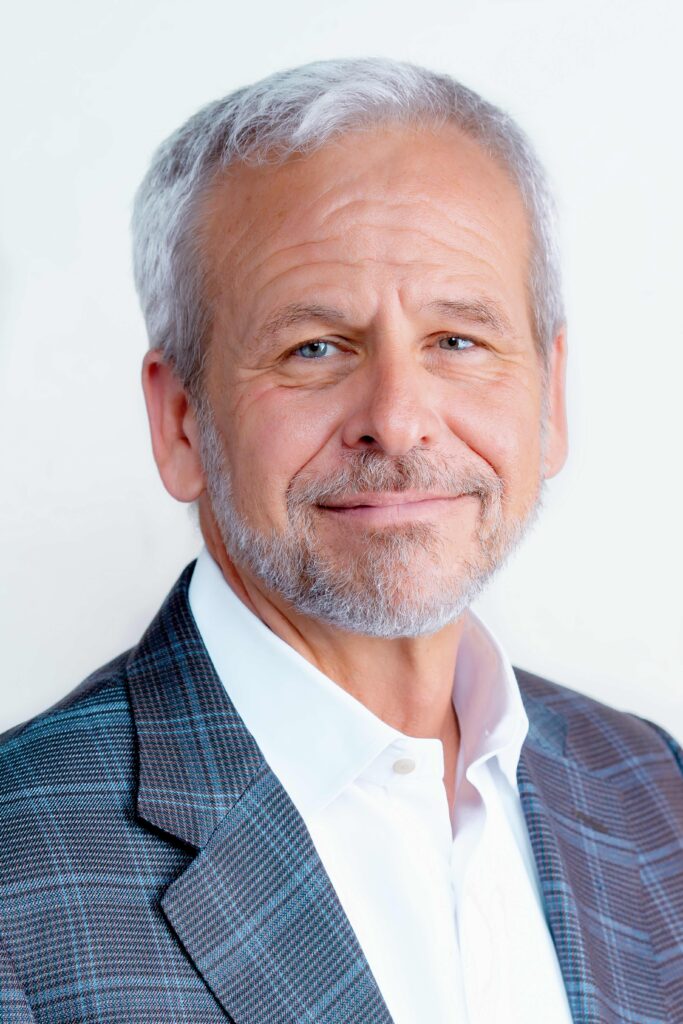
The challenge that Lowell and his team are tackling is how to better integrate associate resource groups (ARGs) into the company’s strategic operation. While ARGs are traditionally used to foster social safety and belonging, Lowell says they aim for the groups to help members thrive and leverage their specific knowledge and experience in areas such as marketing.
Lowell says his team intends to look at ARGs as more than just groups of social belonging, “but as strategic resources to create better, more thoughtful approaches in the marketplace.” Engaging different perspectives in their work will “be transformative for the associate experience,” he adds.
One long-term objective for the team is better integrating data and analytics into the operation of their people function. Like the influential work Scott E Page has done in being able to quantify the value of diversity and inclusion, Lowell says he aims to do the same with engagement and culture surveys and apply analytics in a way that “strengthens the case for building a healthy and resilient culture.”
There are countless amounts of data and metrics available, but the challenge remains in understanding what many of those numbers mean for the bottom line and business outcomes. “I’m convinced that those connections exist,” Lowell says. “Our challenge now is getting clear on tying our activity to the value the company cares about.”
Expressing greatness
Looking ahead in the industry, Lowell is excited about the untapped potential of expanding diversity and inclusion, artificial intelligence capabilities and contributing to closing the (global) digital divide. Many people are left out of the conversation regarding things like AI and solutions around the digital divide, Lowell says. “It’s easy not to listen to the voice that isn’t there,” he says. “But we’ve got to be deliberate in bringing that voice in and representing that voice when we’re having those conversations.”
One major lesson Lowell carries with him throughout his career is to trust yourself when you have taken a nontraditional path. “It required a lot of trust and courage to say this is where my heart is taking me and I’m going to go in that direction,” he says. “Nobody does this alone. Knowing that many people gave a lot to help me grow, I want to do exactly the same.”
Lowell says too often, people are underestimated. “There’s no doubt in my mind that everybody has greatness in them,” he says. “Make it clear that you believe in someone and great things can happen. My hope for UScellular is that we can help people express their greatness in a way that serves the company.”


